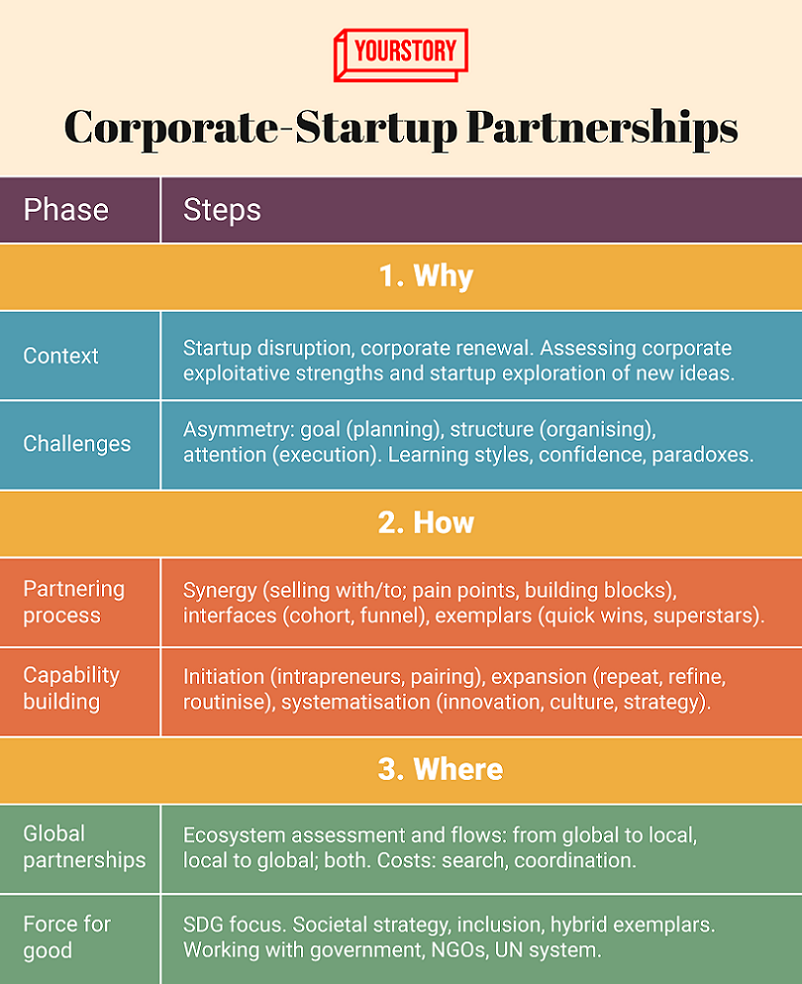Launched in 2014, StoryBites is a weekly feature from YourStory, featuring notable quotable quotes in our articles of this past week (see the previous edition here). This special series of quotes focuses on the increasing impact of digital media around the world. Share these 25 gems and insights with your colleagues and networks, and check back to the original articles for more insights.
See also our pick of Top Quotes of 2021 on Entrepreneurship, Investment, Digital Transformation, Storytelling, The India Opportunity, Pandemic Resilience, Failure Recovery, Design, and Art.

Growth of gaming-focused adtech will be exponential in the coming decade across geographies with the growth of gamers and game publishers across freemium, Web 3.0 and skill-based real money gaming. - Manish Agarwal, Nazara
Decentralised gaming metaverses are going to give autonomy through ownership to creators and users alike. - Anshul Rustaggi, Totality Corp.
In the last two years, the readership for quality, intelligent content has grown significantly. - Mohika Sharma, The Jurni
The year 2022 will see a huge increase in programmatic audio due to increasing interest of publishers and availability of proper technology and standards to provide it. - Pankil Mehta, Alchemy Group
Consumers are discovering brands, discovering products and now even transacting based on recommendations by creators. - Darpan Sanghvi, Good Glamm Group
Marketing is one of the largest spending categories for companies but many of its decisions are still driven by intuition rather than data. - Priya Saiprasad, SoftBank Investment Advisers
The inculcation of tech has enabled marketers to devise a flexible content execution strategy. It has also supercharged their marketing endeavours and forced brands to adapt to the fast-changing landscape. - Mayank Jain, Scalenut
Every other space has its own rules and regulations, but a website is a timeless artifact that people can always visit. - Ajit Sivaram, U&I

One of the many benefits of the internet is that this medium makes mental healthcare more approachable while also being readily accessible. - Rakesh Sharma, AtEase
Technology adoption and digitisation will lead the transformation of dental practice putting patient convenience and comfort at the centre in delivering products and services. - Ranjith Menon, Chiratae Ventures
What you will see now is more and more formal education getting digitised. - Ruchir Arora, CollegeDekho
The shift from legacy to digital processes continues to disrupt every category, including the multi-billion dollar field service management industry. - Shailesh Lakhani, Sequoia India
Both international and homegrown chain hotel brands will expand their portfolio through acquisitions and the sector will see a rise in demand for hospitality technology solutions. - Aditya Sanghi, Hotelogix
Even minor tech-driven enhancements that can save even an hour of on-road time per trip can lead to incremental savings in fuel consumption and wages, bringing the operational costs down. - Karan Shaha, Vahak
Automation, electromobility and connectivity, along with new-age business models and technologies, are transforming the future of the transport industry. - Kamal Bali, Volvo Group, India
In the agri-domain, the sample size of the problem statement is huge and requires collaborative approach to deliver large scale impact. - Shashank Kumar, DeHaat

Lack of financial literacy confuses ordinary citizens to make decisions on which financial assets to own. It is a complex space to understand which leads to decisions taken based on fear or greed. - Neeil Chaurushi, North Alliance
Advancements in technology have sprouted new innovations in the field of AI, blockchain, ML, robotics, and IoT – these will help in furthering the standard of next-gen digital traceability solutions like smart labeling and digital tracing. - Aarti Gill, OZiva
SaaS companies are now realising the importance of developers who could empathise with blue-collar workers and have an emotional quotient (EQ). - Naveen Asrani, AWS
Work, leisure, and social contact are becoming more intertwined as more people use digital technologies. Even after COVID-19 is over, these trends are here to stay. - Ankit Gaur, Livpure
The phrase ‘Your network is your net-worth’ couldn’t be truer in the digital age. Technology and innovation have paved way for a connected world and specialisation is our way of life. - Mohua Sengupta, Mashreq
Often businesses end up implementing processes or systems too early in their journey to measure metrics like revenue or growth. - Deepak Bala, Rocketlane
Automation is the perfect fit for businesses that require the accuracy of information. These tools ensure the data is accurate, reliable, and precise from the point of entry to the final step of the process. - Vicky Jain, uKnowva
The objective of any SaaS or cloud company, in respect of security, should be to establish and maintain the trust of the customer. - Binod PG, Atlassian

Developers now also have to think about how they can be more collaborative in a remote work setting. - Nikhil Nandagopal, Appsmith
When you go out and help people fix problems, it's not just the technology but how people are using it. You really get to see how technology is applied and how transformative it can be. - Matt Robinson, Raahi
Software is a global business, and no matter where you start, you need to compete against the best for creating institutions that last. - Arpit Maheshwari, Stellaris Venture Partners
YourStory has also published the pocketbook ‘Proverbs and Quotes for Entrepreneurs: A World of Inspiration for Startups’ as a creative and motivational guide for innovators (downloadable as apps here: Apple, Android).














